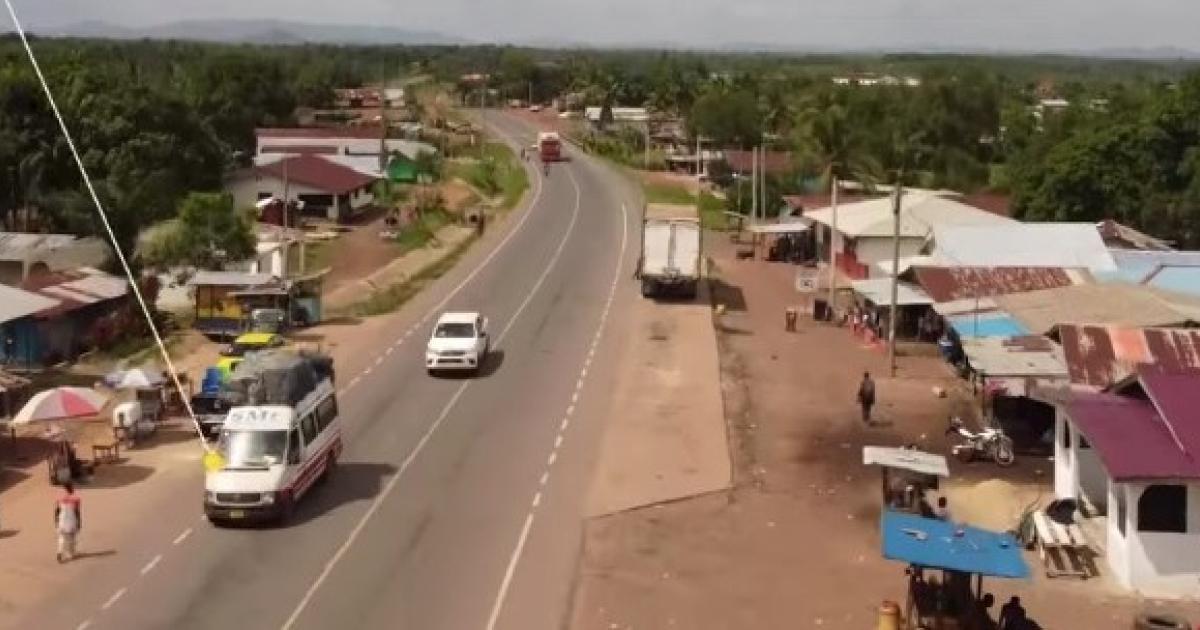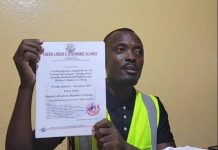Africa-Press – Liberia. The Jeety Rubber factory is expected to soon turn over to the people of Cinta District, Margibi County, a 55 – bed clinic, which would become the largest primary and secondary healthcare center in the district.
The clinic — constructed as part of the factory’s corporate social responsibility program — will contain three general operating theaters, an xray room, an ultrasound room, as well as separate compartment for ophthalmologist and orthopedic cases.
The Jeety clinic, which is expected to serve nearly 20,000 people, many of whom struggle to access quality primary and secondary healthcare as a result of their financial status, will be based in Weala, the financial hub of Cinta.
“The clinic project reflects the company’s commitment to addressing systemic challenges in the health sector as it relates to Cinta District,” said Upjit Singh Sachdeva, founder of the Jeety Rubber Liberia Limited Company. “Services at the clinic, when operational, will be both primary and secondary and the intent is to have the hospital play a critical role in saving lives.”
“It is important [that], as a company, we ensure that we are accountable for public health issues where we operate while forging partnerships with communities to implement projects that they could also own,” Sachdeva added.
This clinic will be so modern that it can easily be equated to a mini hospital, given the amount of medical equipment that will be in the building.
The factory clinic, when operational, in the next two months, will improve health service delivery to women, children, and adolescents in the Cinta district. The few clinics in the district only offer primary health care, and not secondary healthcare, which the Jeety Rubber factory, though still under construction, plans to change in the next two months with the dedication of the company clinic.
“In Cinta, the population is over 20,000 but you will not believe that we have been relying on the minimum health services,” said Roland Johnson, Commissioner of Cinta Township. “We appreciate the work the clinic is doing but the coming of Jeety Rubber clinic will help a lot.”
The clinic, the commissioner said, will help alleviate the multiple constraints the locals face in getting basic but quality primary and secondary healthcare. He added that the harsh economic constraints and hardship cannot allow the vast majority of the residents to seek medical attention and advanced facilities out of the district.
“Our people have to go faraway places to seek treatment for every secondary case. It is a serious burden on the citizens,” the Commissioner said. “So this clinic is solely a blessing for us.”
According to Dr. M. Hablani, who is expected to head the clinic when completed, the health center will provide treatment for multiple illnesses, however, complicated cases beyond its control will be referred to hospitals.
“For clinical and other problems, we will be able to do them right here. We will treat all patients, but serious cases will not be handled here. We will have an ambulance here and our workers will be professional and qualified people coming from here,” said Hablani.
“What we are going to have here is a modern clinic that provides services to the level of a hospital to reduce the financial burden on the people free of charge. We are going to have qualified and specialized medical doctors here since we are providing primary and secondary healthcare.”
Dr. Hablani previously worked at the St. Joseph’s Catholic Hospital and the John F. Kennedy Medical Center.
The Jeety Rubber factory, which is currently under construction, is a rubber processing and production plant for the production of tyres and other natural rubber products. The company is expected to process approximately 25,000 tons of natural rubber per annum but, in the meantime, it is implementing its corporate social responsibility while it anticipates the opening of the factory next year.
For More News And Analysis About Liberia Follow Africa-Press






